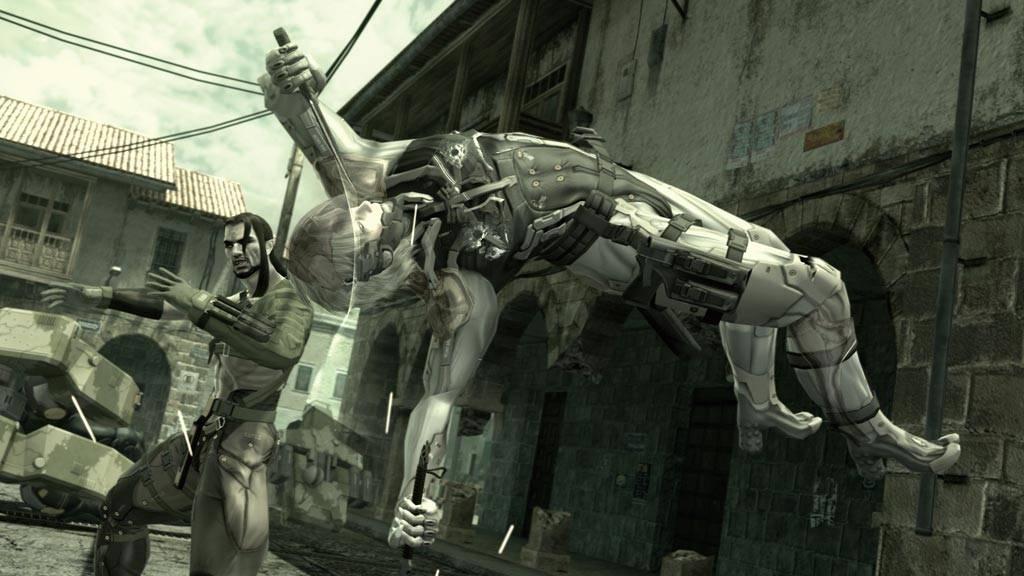
No, not that kind
A majority of society doesn’t view video games as an art form and the mainstream video game industry doesn’t do much to change that perception. For every Braid, there are a handful of different games trying to replicate the success of Call of Duty 4: Modern Warfare. The mainstream video game industry, similar to the major studio movie industry, practices a business model that is preoccupied with satisfying target demographics, because it has proven to be profitable in the past. In other words, games that have artistic value and merit will likely not have same production value, support, and advertising as a triple a title.
What needs to be done to change this perception? I believe as gamers, we should first examine what makes video games unique. I believe there are 2 unique traits that video games possess that no other form of art or entertainment possess.

Hope you brought popcorn and/or a catheter.
1. Direct manipulation of the work itself. This is one that we all know and understand thoroughly. The outcome of a game is determined and chosen by the player or players. This unique aspect has been fully integrated as an essential part of video gaming. Without being able to manipulate a game, we become passive viewers unable to make any choices and effect outcomes. We are essentially relegated to watching a short film, or in the case of Metal Gear Solid 4 or Xenosaga, something even longer. Players of course manipulate video games using…

Why isn’t there one for Wii?!
2. Controllers are an intermediary between the player and video game itself. Gamers, developers, and publishers have been recently reminded that there are other ways to control games other than buttons and control sticks. Motion controls, touch controls, voice control, and augmented reality are all currently being experimented with and evolving. I believe in the future video game artists will create their own controllers for their own works of art.

Tennis For Two. Think of it as the Rothko of video games.
I believe that experimentation with these aspects will lead to a better understanding of makes a video game a video game. Experimentation by deconstruction of the medium itself will point us towards the origins are video games. Take Tennis for Two as an example. By examiningTennis for Two, we see a video game unconcerned with plot, or character development. Instead, we have an example of almost pure direct manipulation. The unique thing about Tennis for Two is that there is no possible way to translate the experience that it is to another medium. Unlike the many modern triple A titles, Tennis for Two lacks plot or character development, essentials of narrative storytelling for literature, and films. If a video game relies heavily on plot and character development, then there should be a reason why it’s being developed into a video game and not a film or novel. I personally haven’t found video games to be a superior medium to convey narrative. A problem lies in the fact that video games use the exact same techniques as film to convey narrative. Cinematic cutscenes, particularly those that are non-interactive are counteractive in helping cultivate video games into it’s own medium. If developers can evoke emotions out of players without the use of a cutscene, instead, by using the direct interaction of the player, what a powerful tool that would be.

Pants on the ground…
In a comparatively short amount of time, video games have become as far reaching, profitable, and widely accepted as films. Unlike films however, video games do not have the same kind of history. Film has a rich history of periods, genres, waves, experimentation, and perhaps more importantly (to the public perception) the support and participation of artists such as Andy Warhol, Salvador Dali, and John Lennon. Only now are we beginning to see those who have grown up with video games all through their lives make their way through the industry. They’re not yet the ones in charge, but I anticipate that they have a profound effect on the industry. American film was effected with a generation of film school graduates including the likes of George Lucas, Francis Ford Coppola, Martin Scorsese, and Steven Spielberg. Perhaps with the support of high-profile, and respected celebrities like Steven Spielberg, and an upcoming generation of video gamers slowly taking hold of the industry, we will see video games as an artistic medium mature. In the future, not only will the developers, publishers, and critics be of a generation who have known and played video games all their lives, but a vast majority of the public will be as well. When the mainstream video game industry is ready to take the medium seriously, and maturely, I suspect that the public will as well.
